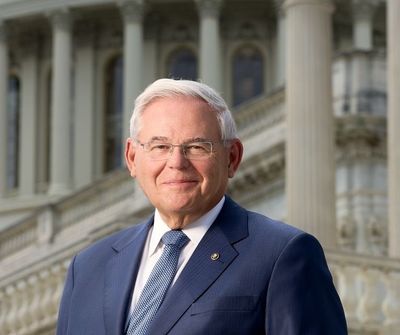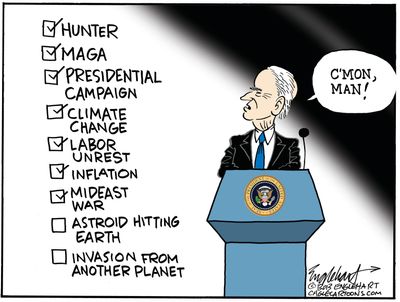by Debbie Cenziper, ProPublica, and Will Fitzgibbon, International Consortium of Investigative Journalists
ProPublica is a Pulitzer Prize-winning investigative newsroom. Sign up for The Big Story newsletter to receive stories like this one in your inbox.
Series: Shadow Diplomats
The Global Threat of Rogue Diplomacy
In 1942, as Nazi Germany began to send hundreds of thousands of Jews to killing centers, Brazilian police swooped into a port city in the South American country and arrested a wealthy landowner.
To locals, he was Otto Uebele, a Brazilian manager of a prominent coffee trading company. He also served as honorary consul for Germany — and was an accused Nazi spy.
“One of the leaders of German espionage in South America,” Allied intelligence agents wrote in a secret document, later released by the CIA.
A local newspaper at the time called Uebele a man of “respectable appearance, who enjoyed the greatest prestige and influence in social and commercial circles.”
“Nobody,” the paper wrote, “could imagine him a spy. The fact went off like a bomb, such was the surprise.”
Historians have long chronicled the clandestine use of ambassadors and other professional diplomats by Nazi intelligence services. Far less attention has focused on the activities of honorary consuls, who for centuries have worked from their home countries to represent the interests of foreign governments.
ProPublica and the International Consortium of Investigative Journalists used declassified intelligence documents, media accounts and other reports to identify about 20 honorary consuls who were suspected of supporting the Third Reich through espionage and other illicit activities.
The consuls included a social hall vice president, a fertilizer merchant and a chemist. They largely lived and worked in neutral countries in Latin America, Europe and Africa, where Nazi Germany sought to cultivate allies or gain an advantage at critical ports and other strategic locations. A majority of the honorary consuls were appointed directly by Germany; some were named by other countries.
The use of honorary consuls by the Third Reich to cultivate power and influence is not a historical anomaly.
An ongoing investigation by ProPublica and ICIJ has exposed widespread exploitation of the largely unchecked honorary consul system, now embraced by most of the world’s governments. In exchange for their service, honorary consuls receive some of the same privileges and protections provided to career diplomats: They can move bags across borders without inspection and their offices and correspondence are protected from searches.
Terrorist groups and leaders of corrupt regimes have leveraged the volunteer diplomats as agents of disruption, part of a strategy to advance political and ideological agendas, the ProPublica and ICIJ investigation found.
Honorary consuls tied to the Lebanese terrorist group Hezbollah have stood accused of moving drugs and money. The intelligence service in North Macedonia alleged that two honorary consuls appointed by the Kremlin allowed their offices to be used as Russian “intelligence bases.” Other honorary consuls have supported President Vladimir Putin’s brutal invasions of Ukraine.
The names of honorary consuls suspected of supporting the Nazi regime appear in a series of declassified reports that describe a broader intelligence-gathering effort run out of German embassies.
Nazi spies were “usually built into the diplomatic staff accredited to a neutral government, their leaders being camouflaged as honorary consuls or other functionaries,” according to a 1946 U.S. Army report on German intelligence during the war.
In Brazil, Uebele was captured and imprisoned. The U.S. ambassador at the time told officials in Washington that Uebele had provided fuel for Nazi boats and helped supply submarines, archival records show.
“I am a consul and our espionage will have to be entrusted to the shadow of the consulate,” Uebele said, according to a transcript of an interview with another accused spy published in Brazilian media in 1949 under the headline “Diplomacy and Espionage in Hitler's Germany.”
Uebele was ultimately acquitted in Brazil after a lengthy legal case, but the government refused to return his seized property, according to one media report. He died in 1956.
“That is the way the Germans did things,” said Priscila F. Perazzo, a history professor at Universidade Municipal de São Caetano do Sul Municipal in Brazil and author of a book on wartime espionage that described Uebele. “The center of espionage in Brazil ran through rich and powerful men in the private sector with connections to the embassy.”
In Spain, Germany appointed as honorary consul onetime brewery manager Wilhelm Leissner, who also used the name Gustav Lenz. He reportedly oversaw a large spy network in Europe, intercepting communications and forwarding information to Berlin in a diplomatic pouch, declassified records show.
“He is officially described as ‘Honorary Attache’ to the Germany embassy, but is in reality the controller of a large network of officers, agents and sub-agents,” according to a 1942 declassified document titled “Enemy intelligence activity in Spain.”
In 1944, Leissner approved a payment to an American who had agreed to provide the Germans information about the Allied invasion of southern France, according to interrogation records in a U.S. military intelligence report.
The Germans “would have guys like that who would take care of certain regions. They’re the ones contacting other Germans and bringing other people into their espionage networks,” said historian David A. Messenger, who authored a book about Nazi spies in Spain. “A low-level diplomat has contacts in the Spanish governments, knows people in economics, people in industry.”
Records show Leissner was sent back to Germany in U.S. custody in 1946, but it is unclear what happened after that.
Elsewhere, at least two honorary consuls who worked for a well-known shipping company were suspected of providing intelligence from the coast of West Africa. In Argentina, a furrier who had served as honorary consul became one of the most notable spies in South America.
German espionage networks in Central and South America were a significant concern for the FBI, which by 1946 identified nearly 900 Nazi spies, according to the agency.
Honorary consuls supported Nazi Germany in other ways, archival records show. One in Sweden gave money to a Nazi party member and to the German “winter help” fund. Another in Spain was suspected in late 1945 of arranging to move jewels and a valuable collection of postage stamps out of Germany.
In 2005, Germany’s then-foreign minister called for an investigation of the Foreign Ministry, commissioning four historians. They found that the office, which had previously distanced itself from Nazi genocide, had been actively involved in the mass murder of Jews.
This year, Germany’s foreign minister publicly recognized the role that diplomats played during the Holocaust. The statements by Annalena Baerbock were made on the 80th anniversary of the 1942 Wannsee Conference, when high-ranking Nazi Party and German officials gathered in a Berlin suburb to plot what they called the “final solution of the Jewish question.”
“We remember the murdered Jewish women, men and children, and those who survived the Holocaust,” Baerbock said.
Foreign Ministry officials “who put themselves at the service of the crimes and genocide of the Nazi regime also bear responsibility for their suffering,” she said.




